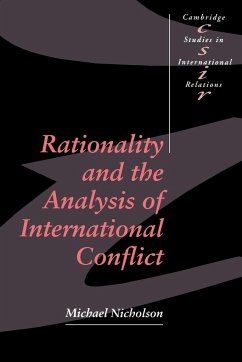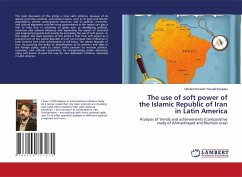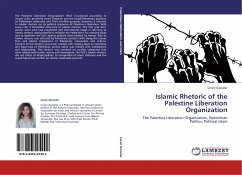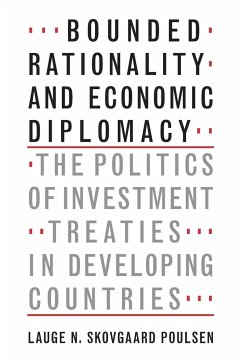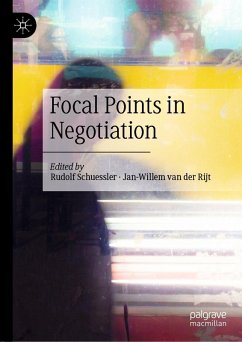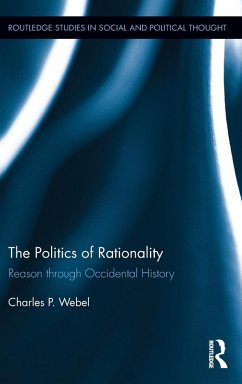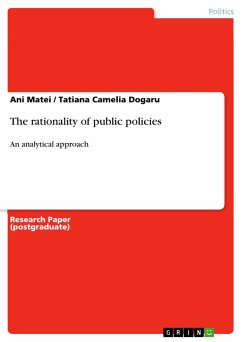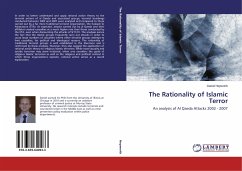
The Rationality of Islamic Terror
An analysis of Al Qaeda Attacks 2002 - 2007
Versandkostenfrei!
Versandfertig in 6-10 Tagen
37,99 €
inkl. MwSt.

PAYBACK Punkte
19 °P sammeln!
In order to better understand and apply rational action theory to the terrorist actions of al Qaeda and associated groups, terrorist bombings conducted between 2002 and 2007 were analyzed and compared to those carried out by a far more traditional terrorist organization, the Euskadi Ta Askatasuna (ETA). As expected, attacks carried out by al Qaeda and their affiliates created casualties at a much higher rate than those conducted by the ETA, even when discounting the attacks of 9/11/01. The analyses evince the fact that the Islamic groups frequently carry out attacks in order to cause large num...
In order to better understand and apply rational action theory to the terrorist actions of al Qaeda and associated groups, terrorist bombings conducted between 2002 and 2007 were analyzed and compared to those carried out by a far more traditional terrorist organization, the Euskadi Ta Askatasuna (ETA). As expected, attacks carried out by al Qaeda and their affiliates created casualties at a much higher rate than those conducted by the ETA, even when discounting the attacks of 9/11/01. The analyses evince the fact that the Islamic groups frequently carry out attacks in order to cause large numbers of casualties where other terrorist groups attempt to limit casualties, for political and ideological reasons. The rationality of traditional terrorist groups is well established in the literature and is reinforced by these analyses. However, they also suggest the application of rational action theory to religious Islamic terrorism. While mass-casualty and suicide terrorism may seem irrational, when one considers the goals of religious Islamic terrorism as well as the religious and political context in which those organizations operate, rational action serves as a sound explanation.



